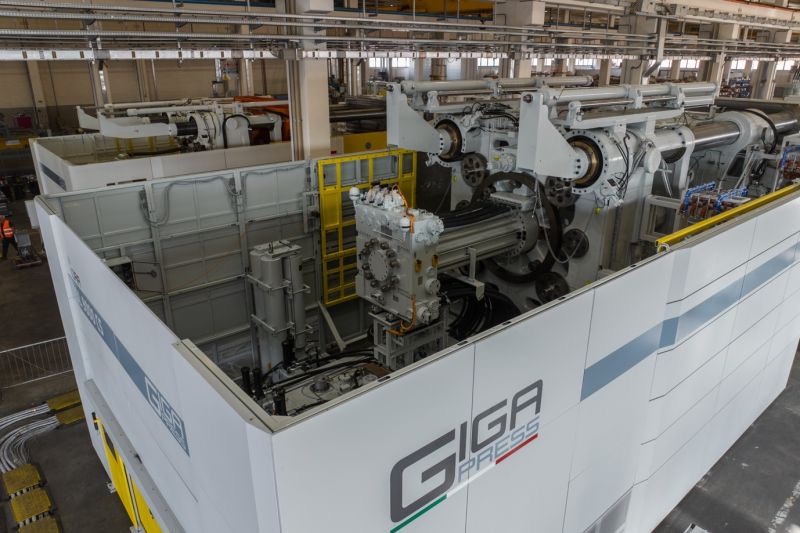
Following in Telsa’s footsteps, Volvo has just signed a contract with Italian giga press maker IDRA to install two of its largest presses at a new site in Slovakia. The giga presses – what will likely be a reconfigured version of the same Giga Press 9000 that is making Telsa’s Cybertruck – are the world’s largest, the size of a small house and producing a clamping force of more than 9,000 tons.
While no word has been given on the value of the contract, Volvo has signed up for two 9,000-ton giga press machines for its factory in Košice, Slovakia. Volvo is in the process of building a $1.25 billion factory there that will be capable of making 250,000 EVs a year. Production for its next-gen EVs is slated to start in 2026.
Chinese-owned IDRA, the company that makes Tesla’s giga presses, has also signed deals with Ford and Hyundai last month, the same time the company hinted at a “premium European automaker” as being a new customer. Now that mystery has been solved. Volvo, like other legacy automakers, has been exploring the cutting-edge technology pioneered by Tesla in hopes of ramping up EV production while saving on energy outputs.
Tesla’s giga-casting technology, a production method that involves stamping out larger chassis components rather than casting numerous smaller parts and drilling and spot-welding them together, has been a game changer – and while it has its critics in terms of quality risk, it reduces total production costs to help compensate for battery packs costs, which make up anywhere from 25% to 40% of the total cost of an BEV. Tesla reported lowering production costs by 30% after adding the giga-casting to production lines in 2020.
IDRA said it has signed orders for 25 presses globally, with 21 already sent out to customers. Tesla has reportedly already received 14 presses, including two 9000 models for its new Cybertruck production plant in Austin.
Volvo, headquartered in Sweden and owned by China’s Geely, is working toward its goal of making half of its global vehicle sales from battery-powered cars by 2025. By 2030, the company aims to be an electric-only automaker. To facilitate this, Volvo has announced an investment of more than $4 billion over the past two years.
